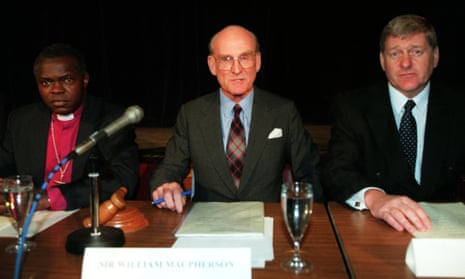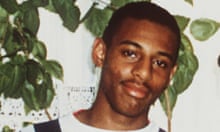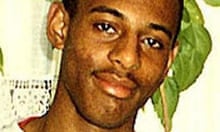You had to be there. You had to know what life was like before the Macpherson inquiry into the death of Stephen Lawrence, and then after.
Before Macpherson, the issue for campaigners, for distraught families and for journalists seeking to do their jobs by throwing light on police misbehaviour towards people of colour, was to prove not just that it was happening but that it was possible. Whenever a voice was raised, it was silenced, by the police and by the media. Victims and their families were rubbished; those campaigners who sought to help them were portrayed to middle England as opportunists and extremists.
It took an official inquiry to break through that wall of wilful obfuscation. It took a very conservative judge like Sir William Macpherson of Cluny to make that happen.
After the inquiry, the issue facing modern Britain became a different one. We moved from “Does racism exist?” to “How much racism is there?” We moved from “Do the police provide an inferior service to Black Britain?” to “How much worse is it – and why?”
He was not a popular choice. He came to the task with a record of past judgments that led some activists to reject him as too conservative, perhaps illiberal. But as the weeks of his inquiry passed, as the Lawrence’s continued their historic campaign, as details emerged of how a grieving family and Duwayne Brooks, a traumatised teenager who saw his friend knifed to death, were treated, as the shoddiness and the apparent indifference was exposed, those of us who sat through the inquiry saw Macpherson move from scepticism to concern, to shock and incredulity. He was always composed, but often his bemusement was clear.
He was an establishment man; he believed in the institutions. But he was clearly hearing – from police officers and the long list of witnesses – attitudes and behaviours that outraged his sense of propriety.
We know, from those who sat with him after the hearings – when the judge, a Scottish clan leader, would pour himself and colleagues who indulged, a small whisky – of that quiet outrage and that period of learning.
He had parameters. He gave the Lawrence’s barrister, Michael Mansfield QC, precious little room to develop the argument that what lay behind the botched police performance was corruption. That was perhaps, too grave a perfidy for him to accept.
But his report was a game changer. The condemnation of the police was unprecedented. His assessment of the discriminatory tendencies in a whole range of institutions – a view shaped by the second part of his inquiry when he toured the country – was damning. The effect of that was far-reaching, as bodies and companies scrambled to protect themselves from the very public shaming that befell the Metropolitan police.
Once the inquiry was over and the report published, he added little to them. Perhaps he felt he had travelled far enough. Many on the right have still not forgiven Macpherson for not just embracing the term institutional racism – giving the official seal to a term first popularised by the US civil rights activist Stokely Carmichael – but for compounding the offence by offering his own precise definition. Part of that referred to “the collective failure of an organisation to provide an appropriate and professional service to people because of their colour, culture, or ethnic origin”.
It said that the problem went beyond abuse racial abuse and physical assaults to encompass institutions that by the sum of individual decisions, discriminate as entities. It is that part of his report that provoked the stiffest backlash and continues to describe the toughest challenge.
Rather than a resolution, Macpherson lived to see in some respects a degree of backsliding in terms of race relations and the vision he set out, but undoubtedly he helped to shape a new conversation about diversity, about policing and ultimately the expectations there should be in a decent society.







